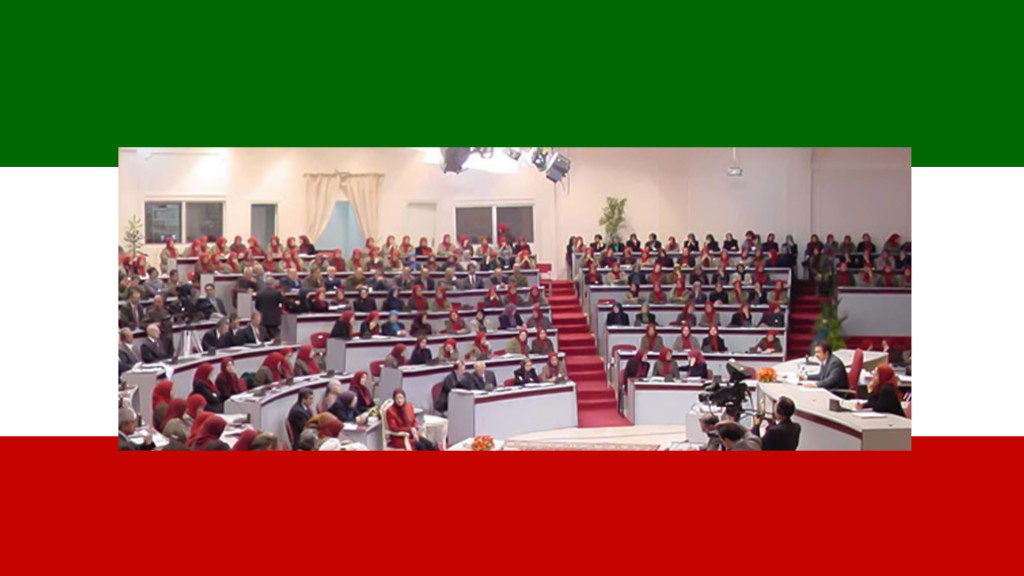Achieving Autonomy and Justice for Iran’s Ethnicities and Nationalities

November 8 marks the anniversary of the National Council of Resistance of Iran’s (NCRI) adoption of a plan for the autonomy of Iranian Kurdistan, approved in a council session in 1983. Forty-one years later, this 12-point proposal endures as one of the most comprehensive models of its kind globally.[1]
Since its inception, the National Council of Resistance of Iran (NCRI) has steadfastly prioritized the autonomy of oppressed nationalities. From the very beginning of Khomeini’s rule, the NCRI’s founding members resolutely opposed the regime’s suppression of Kurds, Arabs, Turkmen, and other ethnic groups across Iran.
In its platform, the NCRI stresses that all nationalities and ethnic groups within our homeland must have the right to internal autonomy. It affirms that their cultural, social, and political rights and freedoms should be protected within the framework of national unity, sovereignty, and territorial integrity.
The plan states that all rights and freedoms enshrined in the Universal Declaration of Human Rights and relevant international conventions—such as freedom of thought and expression, freedom of the press, the right to form and operate political parties and organizations, labor, peasant, and professional unions, democratic associations, the freedom to choose one’s occupation and place of residence, and freedom of religion—will be fully guaranteed in autonomous Kurdistan, just as they are in other regions of Iran.
All residents of Kurdistan, regardless of gender, will have equal access to social, economic, political, and cultural rights, on par with the residents of other regions of Iran, and without any discrimination based on gender, ethnicity, race, or religion.[2]
We assert that the presence of oppressed nationalities is a powerful and vital force for toppling the regime and achieving freedom. Therefore, Iran’s multicultural and multilingual character must be celebrated. Our fellow citizens, who belong to diverse nationalities, cultures, and languages, must have the right to participate equally in national decision-making, preserve their cultural, religious, and linguistic identities, and speak, work, study, and promote their mother tongue.[3]
The clerical regime is the enemy of all Iranians, whether Persian, Turk, Kurd, Arab, or Baluch, and in terms of repression, all are equally affected. However, some of our fellow citizens endure the compounded oppression of both national and religious discrimination, facing severe injustice, repression, and discrimination at the hands of the clerical regime. Overthrowing the clerical regime is essential to ending all these forms of oppression.[4]
We advocate for the creation of a society founded on the principles of freedom, democracy, and equality —one that stands in stark opposition to despotism, dependency, and gender, ethnic, and class discrimination. We support the equality of women and men, the right to freely choose one’s attire, the separation of religion and state, the autonomy of nationalities, and equal political and social rights for all citizens of Iran. We call for the abolition of the death penalty and the protection of freedoms such as expression, political participation, the press, and assembly. We defend the freedom of unions, associations, councils, and syndicates, and we will continue to stand for these rights.[5]
Article seven of the ten-point plan for the future of Iran further emphasizes the autonomy of the country’s ethnicities and nationalities and the end of their compounded oppression, in line with the NCRI plan for the autonomy of Iranian Kurdistan.[6]
[1] Maryam Rajavi’s speech at the three-day session of the National Council of Resistance of Iran, marking the 40th anniversary of the NCRI’s founding, from July 23 to July 26, 2020.
[2] The NCRI Plan for the Autonomy of the Iranian Kurdistan
[3] Maryam Rajavi’s speech at the session of the National Council of Resistance of Iran on the 41st anniversary of the NCRI’s founding, July 2022
[4] Maryam Rajavi, interview with Al-Majalla, March 2011
[5] Maryam Rajavi, Speech at the NCRI Annual Gathering at Villepinte, Paris, June 30, 2018
[6] Maryam Rajavi’s Ten-Point Plan for the Future of Iran

